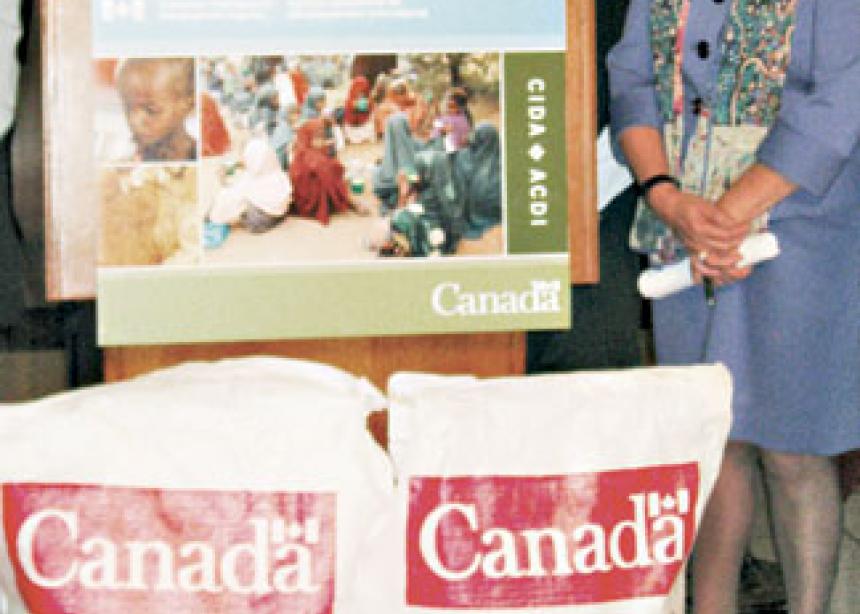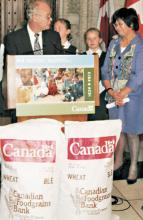More assistance for more people in the developing world—that’s what a new five-year $125-million funding agreement from the Canadian International Development Agency (CIDA) means for the Canadian Foodgrains Bank.
“We are very grateful to the Government of Canada for once again providing us with funding to help people who don’t have enough to eat,” said Foodgrains Bank executive director Jim Cornelius. “Our member agencies, global partners and supporters across the country are deeply appreciative of this continued support.”
The new agreement, which was announced on Oct. 26 in Ottawa, Ont., by Bev Oda, minister of international cooperation, will provide the Foodgrains Bank—a partnership of 15 churches and church agencies (including Mennonite Central Committee) working together to end global hunger—with $25 million a year in matching funds for food assistance work in the developing world.
“We are proud to recognize the Canadian Foodgrains Bank as Canada’s biggest contributor to ending global hunger,” said Oda. “It reflects the values of hard work and compassion shared by all Canadians. Thanks to the churches, community organizations, businesses and individuals who have made a commitment to [the Foodgrains Bank]. You are making a difference for millions of people suffering in emergency and chronic hunger situations worldwide.”
Funding provided by the new agreement will enable the Foodgrains Bank to help people like Jam Joseph, whose farm in rural Pakistan was destroyed by recent severe flooding. “Everything has been lost,” he said, pointing in the direction of his submerged village. “Three acres of my crops have been submerged in water, and we have lost the wheat we were saving. For Jam, his wife Mebhai, and their four children, things are bleak. “We need help until we can go back to our normal life,” he said.
Together with support from CIDA, the Foodgrains Bank is providing wheat flour, pulses, oil and salt for Jam, his family and 16,000 other flood-affected people in Pakistan.
“Our response in Pakistan is a great example of how the Foodgrains Bank and the Canadian government, through CIDA, are working together to help poor and vulnerable people in the developing world,” said Cornelius, adding that the new funding will enable the Foodgrains Bank to “reach many more people with food and other assistance, and to do so in a timely way.”
This includes continuing to respond in East Africa, Cornelius said, where the organization’s long-standing partnership with CIDA “allowed us to respond to the food crisis long before it was in the news, and will enable us to continue providing assistance during the recovery process long after the news cameras are turned off.”
This year, the Foodgrains Bank has committed to 64 projects in 26 countries worth $21 million, including $8.8 million for people suffering from drought in East Africa. In 2010, the Foodgrains Bank provided $38 million worth of assistance for 2.3 million people in 35 countries. Since its founding in 1983, the Foodgrains Bank has provided more than a half-billion dollars worth of assistance for people in 80 countries, including 1.1 million tonnes of food assistance.
Feds fund Foodgrains Bank with $125 million
CIDA money will be used to assist people in developing world
November 9, 2011 | God at work in the World | Number 22
Canadian Foodgrains Bank
Jim Cornelius, executive director of the Canadian Foodgrains Bank, thanks Beverly J. Oda, minister of international cooperation, for providing a further $125 million over the next five years to help feed the world’s hungry people.
Share this page:




Add new comment
Canadian Mennonite invites comments and encourages constructive discussion about our content. Actual full names (first and last) are required. Comments are moderated and may be edited. They will not appear online until approved and will be posted during business hours. Some comments may be reproduced in print.